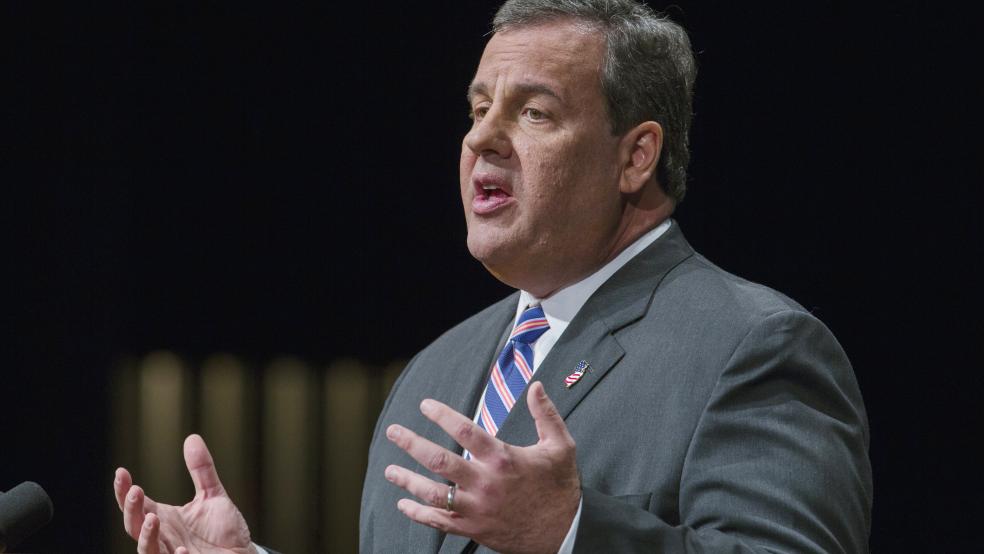New Jersey Governor Chris Christie on Tuesday received the second unwelcome reminder in as many days that the scandal that knocked him from the ranks of top potential 2016 Republican presidential nominees is not going away.
Former top aide to the governor, Bridget Anne Kelly, appeared in State Superior Court in Trenton to fight a subpoena issued by a committee investigating the involvement of key Christie staff in the closing of access lanes to the George Washington Bridge last September.
Related: Prosecutors Widen Christie Bridge Probe
Kelly is a central figure in the bridge case. An email she sent to another Christie appointee saying it was “time for some traffic problems in Fort Lee” appears to have triggered the lane closures, which paralyzed the town of Fort Lee, inhibiting commuters, school buses and emergency vehicles. Evidence suggests the move was seen as political retribution against Fort Lee’s Democratic mayor.
Just yesterday, reports emerged that chairman of the Port Authority of New York and New Jersey – David Samson, a Christie appointee – is being investigated by federal prosecutors for possible conflict of interest. The Port Authority is the agency that manages and controls the George Washington Bridge, which connects New York and New Jersey.
The New York Times also reported Tuesday that Christie had turned the Port Authority into a “de facto political operation” well before the bridge scandal, going so far as to hand out pieces of the wreckage from the World Trade Center, destroyed in the 9/11 terror attacks, to mayors whose endorsement he sought in his reelection campaign. The suggestion from The Times comes just a week after a joint investigation by NJ Spotlight and WNYY/NJ Public Radio charged that the Christie administration had mishandled – and in some cases failed to distribute – parts of a $25 million Hurricane Sandy relief grant the state received through the federal Hazard Mitigation Grand Program Energy Allocation Initiative.
Christie did not respond directly to The Times story on Tuesday, but he has been steadfast in his support of Samson, the Port Authority chairman under investigation, saying that he “strongly, firmly” supports him.
Regarding the bridge closings, Christie has, from the beginning, maintained he had no idea that his staff had any knowledge or involvement. During a two-hour press conference in January, he expressed sadness and confusion about how such a thing could have happened but never wavered in his assertion that he was involved neither in the planning nor the execution of the lane closings. To this day, despite unproven suggestions to the contrary by an attorney representing one of Christie’s former staffers, no evidence suggesting otherwise has arisen.
The bridge scandal, when it first broke, set off a wave of criticism of Christie’s administration. A former U.S. attorney for New Jersey who made his name prosecuting public corruption cases, Christie had been widely seen as a Republican with national stature who could win over Democratic voters, not least of all because of a no-nonsense style that seemed to eschew the settling of political scores in favor of getting results for his constituents. The unfolding evidence suggesting he populated his administration with people for whom settling political scores trumped public safety has put a dent in that image.
Not appearing in court on Tuesday but represented by his attorney was Bill Stepien, Christie’s former campaign manager. Christie fired both Kelly and Stepien the day after the bridge-closing story emerged.
Related: The One Question Chris Christie Couldn’t Answer
Attorneys for the two aides argued their clients should not be compelled to turn over emails to the joint legislative committee investigating the bridge closing, citing, among other things, protections against self-incrimination and unreasonable search and seizure. By giving the attorney representing the committee until March 17 to respond to queries about the committee’s authority, Superior Court Judge Mary Jacobson indicated she’ll probably not rule on the subpoena question for at least a week.
The fact that the “Bridgegate” case seems destined to be making periodic appearances in the media over the coming months cannot be good news for Christie, whose hopes for political survival largely hang in the balance.
Still, the governor received a warm welcome at the Conservative Political Action Conference (CPAC) held outside Washington, D.C., last week and placed fourth in the group’s annual presidential straw poll. The finish was actually stronger than it sounds, because Christie, who has shown willingness to cooperate with Democrats, including President Obama, has not historically been popular with the hard-right wing of the party that CPAC typically represents.
Top Reads from The Fiscal Times:
- GOP Congressional Committee Backs Off Tea Party Conflict
- Rubio Lays the Groundwork for a White House Run
- Rough Week for An Agency Targeted by the GOP





